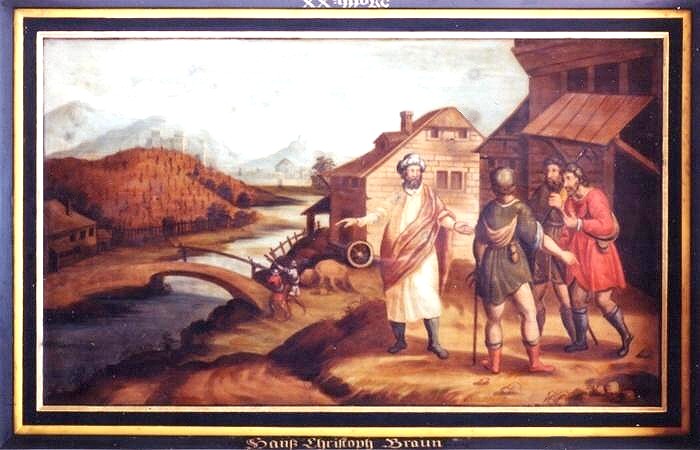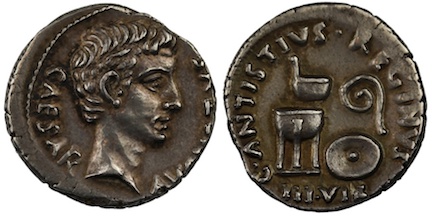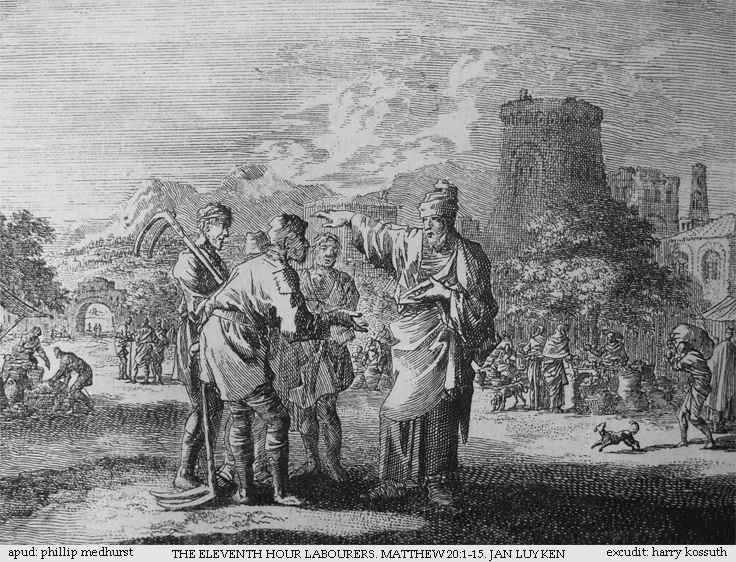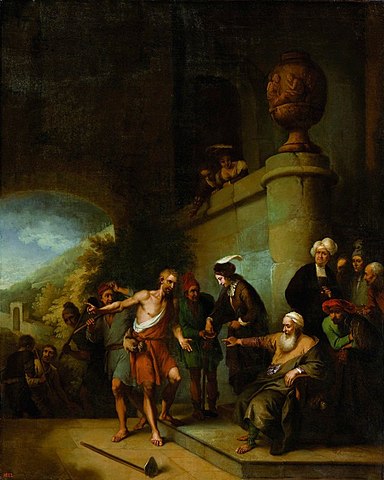A story’s title can prompt the reader to focus on certain aspects of the tale at the expense others, potentially masking its actual meaning. And when the author of the story is not the person who names it—as is the case with Jesus’ parables—the risk of misinterpretation increases. A careful reading of The Parable of the Laborers in the Vineyard reveals that its title is, indeed, a misnomer:[1]
For the kingdom of heaven is like a landowner who went out early in the morning to hire workers for his vineyard.
Matt. 20:1 (NET).

Several Old Testament passages comparing Israel to a vineyard, with Jehovah as its owner,[2] would have lulled some of Christ’s listeners into concluding that this is going to be another sermon about salvation, about what they need to do to get into heaven. But the Savior is less interested in their gaining admission to the Kingdom of Heaven in the afterlife than he is in their building the Kingdom of Heaven here and now. In other words, this parable, like so many others, is about the immediate question of how we love our neighbor today.
Our first clue that the temporal, not just the spiritual, is behind this story is in the first verse where Jesus likens his kingdom not to the laborers in a vineyard but to its owner and how he runs his business. The primary focus is not on the workers, though their role is important, but on the householder—who is a real landowner, not just a figure for God—and how he interacts with his workers and exercises his stewardship. As noted by biblical scholar Amy-Jill Levine, the “householder may be a representative of the divine, but at this point in the parable he is simply an employer” in search of hired help.[3]
And after agreeing with the workers for the standard wage [a denarius], he sent them into his vineyard.
Matt. 20:2 (NET).

A silver denarius was the going rate for day labor at the time;[4] it was a good wage but not unusually generous, sufficient to acquire food to feed a family for a couple of days. But a worker’s failure to secure work on a given day could mean that his family would go hungry. While several scholars and archeologists believe Galilee was prospering economically during the time of Christ, much of the population still relied entirely on homegrown produce and what their labor could fetch in the marketplace.[5]
When it was about nine o’clock in the morning, he [the householder] went out again and saw others standing around in the marketplace without work. He said to them, ‘You go into the vineyard too, and I will give you whatever is right.’
Matt. 20:3-4 (NET).
The King James translation describes the unemployed as “standing idle” but the original Greek term, agori, means literally “without work,” which suggests they were not simply wasting time but unable to find employment.[6]
Some have suggested that the householder, by not agreeing to pay a fixed amount to these new workers, as he did with the first whom he hired, was trying to take advantage of their weak bargaining position. This is unlikely since such unscrupulous behavior would make it difficult for the landowner to hire workers in the future, especially when demand for their services outstripped the available workforce. Also, the Greek word used by the householder for “right” in his promise to pay them “whatever is right” connotes what is “just” and “fair,” and the Hebrew root of this word (tz-d-k) suggests both charity and righteousness; thus, this employer is a man of integrity.
But the householder’s behavior starts to become a bit odd when, later in the day, he returns three more times to the marketplace in search of more workers.

How can he be at once a prosperous businessman while simultaneously being clueless about the number of workers he needs? And while we’re on the subject, the text says nothing about the man’s need for more workers; he simply hires everyone in sight who is willing to work! Why isn’t he trying to keep his costs down and maximize profits? What is going on here?
In answering this question, let’s start by identifying what is not going on.
The standard allegorical interpretation of this parable—which can be found in our church manuals—is to compare the last hired with those “who are lost” or whose “faith is weak,” those who come late to the gospel. The text, however, does not support this reading. When the Savior asks, in verse six, “Why are you standing here all day without work?” They replied: “Because no one hired us.” These workers were part of the same daily labor pool as everyone else; they simply hadn’t found work. There is no evidence to suggest they were late in coming to the marketplace or were lazy or unqualified.
At the end of the workday, “the owner of the vineyard said to his manager, ‘Call the workers and give the pay starting with the last hired until the first.’”[7] When all the paychecks had been distributed and the first hired discovered they didn’t receive a bonus for having worked longer hours, they were aggrieved: “These last fellows worked one hour, and you have made them equal to us who bore the hardship and burning heat of the day.”[8]

The lord of the vineyard responds by saying: “Friend, I am not treating you unfairly. Didn’t you agree with me to work for the standard wage?”[9] The word “friend” is not used here as a term of endearment; to the contrary, it is how Jesus addresses Judas in Gethsemane: “Friend, do what you are here to do,”[10] conveying a sense of dismay and betrayal.
Christ’s audience would likely have considered the behavior of the disgruntled workers a bit farfetched, and rightly so. After all, it would be foolish and shortsighted for day laborers to complain to their employer about his beneficent treatment of others, thereby jeopardizing their ability to secure employment in the future.[11] But buried within the lord of the vineyard’s response to the irrational behavior of these disgruntled workers is a piercing indictment: “You would never speak like this to your employer, yet you, Israel, frequently question my judgments and take for granted the mercy I have repeatedly shown you.”[12]
The reaction the lord of the vineyard had hoped to spark in the hearts of those who worked longer hours is captured perfectly by New Testament scholar Brad H. Young: “The laborers should have been happy about the good fortune of their coworkers, who, because of the generosity of the landowner, would now have enough provision for their families.”[13] Yes, they should have been. And now we are beginning to see that it is the liberality of the householder—who is both analogous to God and a model for each of us—not the ingratitude of the disgruntled workers, that is the true object of the parable.
“Jesus encouraged landowners,” according to Professor Levine, “to enact the graciousness of God by speaking of a vineyard owner who generously assisted some impoverished day laborers.”[14] His decision to treat all workers equally was driven by a sense of fairness and, importantly, an understanding of what people need to live. Of equal significance is the manner in which the landowner’s actions demonstrate a desire to allow the recipients of his largesse to keep their dignity: no one received a handout; all did some work.
“Jesus is neither a Marxist nor a capitalist. Rather, he is both an idealist and a pragmatist,” according to Levine.[15] Yes, he admonishes us to care for the poor and afflicted, but he also instructed all of his brothers and sisters to “be anxiously engaged in a good cause.”[16] Everyone is expected to do their bit, to the extent of their abilities.
While much is required of those who have been given much,[17] landowners are not expected to be generous to the point of undermining the viability of their business. Nor is the Savior suggesting that all should be rewarded equally, regardless of ability or effort. The Parable of the Talents makes this clear.
We sometimes forget how the good deeds of one person often redound to the benefit of others in unexpected ways. The prodigal son benefited from the work of his family. The generosity and courage of the Good Samaritan potentially benefited not only a single wounded man; it also may have softened the enmity between two communities, prompting members of each to start seeing the other as human beings. And, of course, everyone benefits from the sacrifice and infinite atonement of the Savior.
His parable about a righteous and equitable owner of a vineyard teaches us, in a very practical way, how our Father in Heaven administers his kingdom: with compassion and generosity to all.
[1] Matt. 20:1-16 (NET).
[2] Jeremiah 2:21; Hosea 10:1.
[3] Amy-Jill Levine, Short Stories by Jesus, (New York: Harper One, 2014), p. 206.
[4] Joachim Jeremias, New Testament Theology: The Proclamation of Jesus, (New York: Charles Scribner’s Sons, 1971), p. 198.
[5] David A. Fiensy (author, editor) and Ralph K. Hawkins, (author, editor), The Galilean Economy in the Time of Jesus, (Atlanta, Georgia: Society of Biblical Literature, 2013), pp.1-3.
[6] Short Stories, p. 208.
[7] Matthew 20:8 (NET).
[8] Matthew 20:12 (NET).
[9] Matthew 20: 13 (NET).
[10] Matthew 26:50.
[11] NKJV Cultural Backgrounds Study Bible, (Grand Rapids, Michigan: Zondervan, 2017), p. 1713.
[12] See G. K. Beale and D. A. Carson, Commentary on the New Testament Use of the Old Testament, (Grand Rapids, Michigan: Baker Academic, 2007), p. 48 (“The grumbling workers echo the frequent complaints of Israel against God in Moses’ day”).
[13] As quoted in Short Stories, p. 215.
[14] Short Stories, p. 217.
[15] Ibid, p. 218.
[16] D&C 38:27.
[17] Luke 12:48.

Interesting and as always insightful. I kept thinking about the United Order. I also think jealousy is an important part of the story. When I was in Kindergarten my teacher read us the book “Pee Wee the Circus Dog” A girl in the class wildly raised her hand after the story and said “Teacher, teacher Pee Wee is a naughty word.” I have always remembered my teacher’s response. “Let Rosanne McGregor take care of Roseanne.”